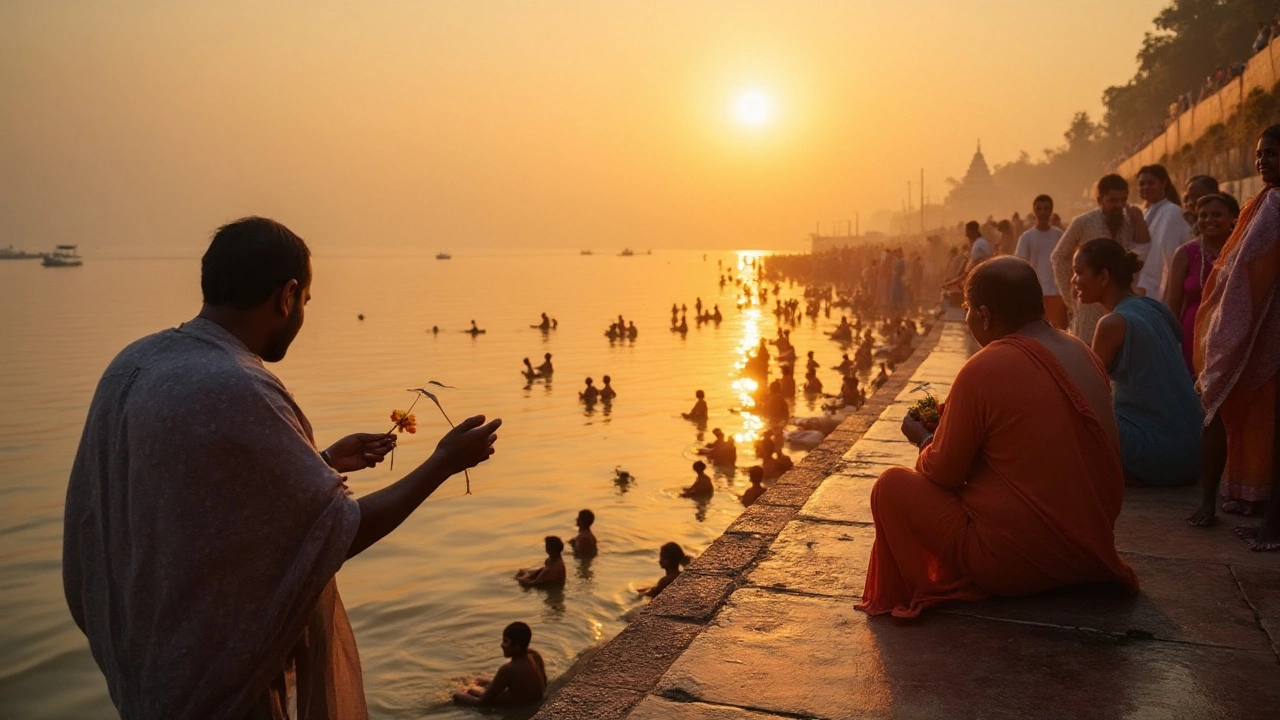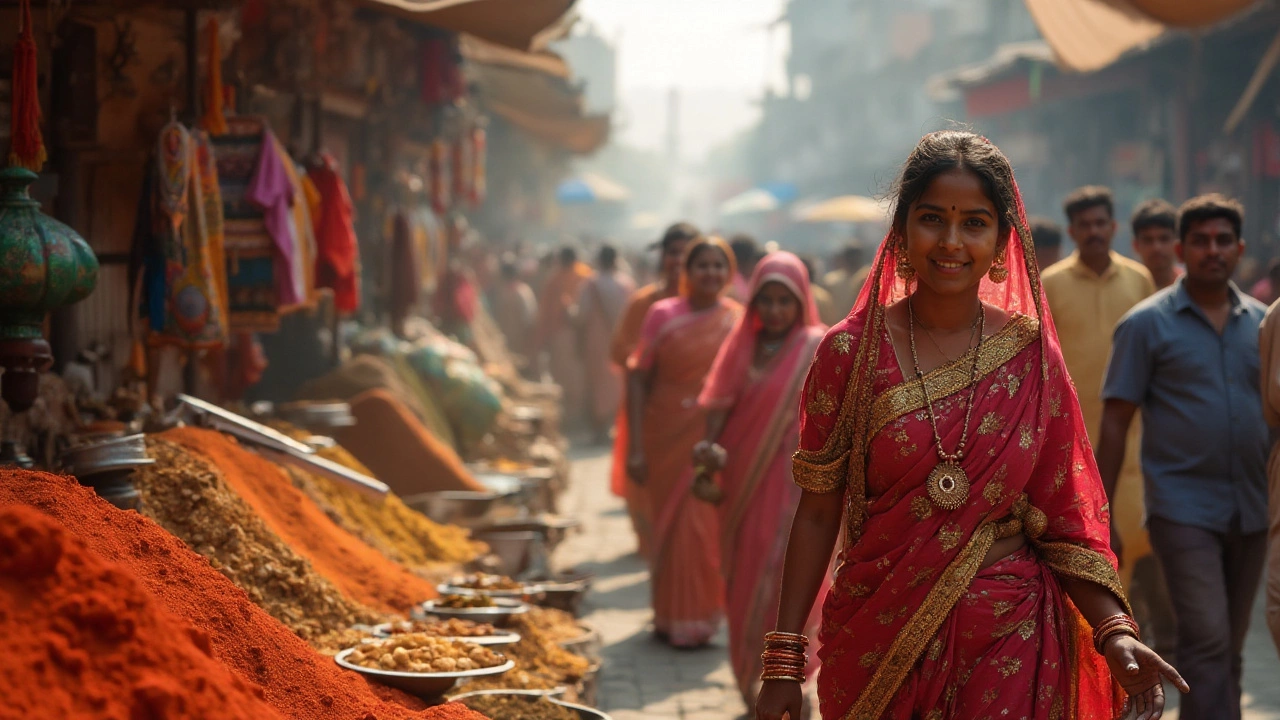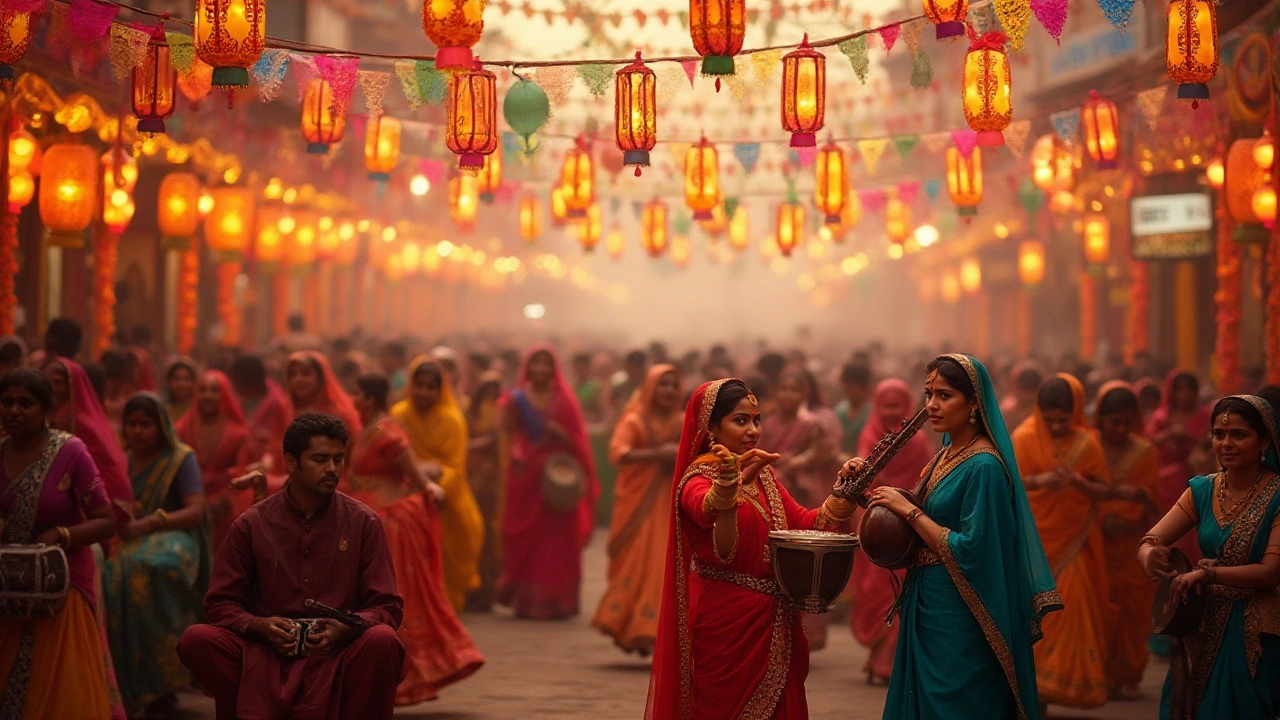Discovering the Soul of India Through Quotes
 Dec, 19 2024
Dec, 19 2024
India is a land where dreams are woven into the very fabric of its people’s daily lives. The rich tapestry of its cultures and traditions has inspired countless quotes that reflect their aspirations and values. These quotes are more than just words; they embody the dreams, hopes, and ethos of a nation.
In this article, we delve into the heart of India by exploring quotes that have been passed down through generations, shedding light on the dreams that drive a diverse and dynamic society. Whether these dreams speak of unity in diversity or the pursuit of knowledge, each quote offers a window into India's soul.
Join us as we uncover the significance of these dreams, interpret some of the most famous quotes, and discover how they continue to inspire personal growth and societal change. By understanding these quotes, one can gain valuable insights into how the dreams of India have been shaped and how they can inspire people around the world today.
- Significance of India's Dreams
- Famous Quotes and Their Meanings
- Applying the Quotes to Life
- Cultural Influence of Indian Quotes
Significance of India's Dreams
The idea of a 'dream' has always played a crucial role in defining the aspirations of individuals and nations alike. India, with its vast and complex tapestry of cultures, languages, and traditions, has created a rich environment where dreams thrive. For centuries, India's dreams have been represented through profound stories, epic tales, and inspirational quotes that encapsulate the hopes of a nation. From ancient texts such as the Vedas and Upanishads to the revolutionary ideas of modern thinkers like Mahatma Gandhi, India's dreams echo resilience, unity, and the pursuit of knowledge.
In the context of a rapidly changing world, the dreams of India gain even greater importance. As a nation that has been both colonized and independent, India’s journey is a testament to the enduring power of dreams. After centuries under colonial rule, the country's desire for freedom crystallized into action, motivated by the dream of a sovereign homeland. This dream was vividly captured in Mahatma Gandhi's idea of Swaraj, or self-rule, which inspired millions to join the independence movement. As Gandhi wisely noted,
“Be the change that you wish to see in the world.”This quote exemplifies the Indian belief that collective aspirations can indeed transform societies.
Today, the significance of dreams in India stretches beyond mere political freedom. It encompasses economic development, social equality, and cultural renaissance. The IT revolution in hubs like Bengaluru and Hyderabad was once a distant dream that transformed into reality, propelling India onto the global stage as a leader in technology and innovation. Dreams of educational reforms have also seen strides through initiatives aimed at universal literacy and improved educational standards. As a result, India has produced some of the world's most brilliant minds in science, technology, and entrepreneurship, affirming that dreams, when diligently pursued, can indeed come true.
The significance is not just in the achievement but in the enduring spirit of dreaming. India's unique cultural identity blends ancient wisdom and modern ingenuity. Quotes and teachings from figures like Rabindranath Tagore, who dreamed of a world where the mind is without fear and the head is held high, continue to inspire generations. The nation's dream of unity amidst diversity reflects its commitment to harmony, evident in festivities, culinary arts, and dialects that coexist remarkably. As highlighted by Tagore's words,
“Let my country awake!”the call is for action grounded in inspiration and vision.
The significance of India’s dreams cannot be understated, as they symbolize not only personal ambitions but a collective future where each citizen plays a role. They encourage a holistic approach, living by ideals of compassion and justice, which are fundamental to India's ethos. This dreamscape is not bounded by geographical borders but is an invitation to the world to participate in a journey of innovation and collaboration. The dreams of India serve as a beacon, guiding a nation toward continuous growth and enlightenment, reinforcing the belief that with determination and unity, the most audacious dreams can become reality.

Famous Quotes and Their Meanings
India, with its rich history stretching back thousands of years, is a treasure trove of wisdom and inspiration. Many famous quotes have emerged from this land, capturing the essence of its dreams and aspirations. Let's delve into these India quotes, exploring their meanings and what they reveal about the Indian spirit. One widely reverberated quote is Mahatma Gandhi's compelling assertion, "You must be the change you wish to see in the world." This statement encapsulates a profound principle of personal responsibility and empowerment. It urges individuals to embody the traits they value rather than waiting passively for broader societal transformation. This quote continues to inspire people globally, advocating for proactive engagement in creating a better future. It stands as a testament to India’s enduring spirit of self-reliance and active participation in shaping one’s destiny.
The words of the Nobel Laureate Rabindranath Tagore also offer significant insights. In his poem “Where the mind is without fear,” he speaks of a nation that stands boldly in truth and knowledge. Tagore's vision of India was one of a liberated, enlightened society where thoughts and actions are free from the shackles of ignorance and fear. These words invite reflection on the values that sustain a healthy and progressive society, emphasizing courage and intellectual freedom. The desires he expressed through this quote remain relevant as India continues to navigate the complexities of modern life, maintaining its cultural roots while adapting to new challenges.
Similarly, Swami Vivekananda, an iconic figure in Indian cultural renaissance, offered words that resonate deeply. His call to "Arise, awake, and stop not till the goal is reached" encapsulates a timeless message of perseverance and determination. It speaks to the indomitable human spirit, encouraging individuals to pursue their dreams with unwavering resolve. Vivekananda’s quotes reflect a core element of Indian philosophy, advocating for relentless effort and self-improvement as pathways to success. These teachings have played a vital role in shaping the mindset of generations, nurturing a resilient spirit that is distinctly Indian.
Another poignant quote comes from the ancient Indian epic, the Mahabharata: "Time creates all things, and time destroys them all." This reflection on the impermanent nature of life challenges us to embrace change and see beyond the immediate. The philosophy embodied here is integral to understanding the Indian worldview, where everything is part of a larger, interconnected cycle. This acknowledgment of India's temporal landscape fosters a unique strength, teaching resilience and adaptability in the face of life’s inevitable shifts. It is a reminder of the cyclical nature of growth and decay, urging individuals to find balance and harmony within the flux of existence.
"One of the best things about popular quotes is not only the inspiration they bring but also how they highlight universal truths through the lens of personal experience." — AnonymousThe impact of these quotes extends beyond borders, offering lessons not only for India but for the world. Their profound insights into the human condition touch on universal themes of courage, resilience, and the pursuit of truth. They provide a meaningful connection to the values and traditions that have built and sustained India's rich cultural heritage. As we relate these quotes to our own lives, they encourage introspection and personal growth, reminding us to align our dreams with the enduring visions that have inspired generations.

Applying the Quotes to Life
Quotes from India serve as profound guides to living a meaningful life, drawing from the country's rich history and philosophical traditions. These words craft a blueprint for personal growth and self-discovery, urging us to embrace each moment with awareness and purpose. By examining the life lessons embedded in these quotes, we gain a fresh perspective on how to incorporate their wisdom into daily practices and attitudes.
At the heart of these Indian quotes lies the concept of unity in diversity. This idea encourages us to recognize and celebrate the multifaceted aspects of our identities and communities. A famous quote by Mahatma Gandhi, "In a gentle way, you can shake the world," highlights the power of resilience and kindness. By embodying this principle, we learn to influence our environment positively without resorting to aggression or force. This approach is crucial in multicultural settings where understanding and empathy forge stronger connections.
Incorporating the essence of these quotes into our routine involves mindful reflection and strategic action. Start by setting aside time each day to meditate on a quote, allowing its meaning to infuse your thoughts and intentions. Consider journaling about how the quote relates to your personal experiences, and identify specific actions you can take to align with its principles. For instance, embracing the teachings of "Vasudhaiva Kutumbakam," meaning "the world is one family," might inspire you to volunteer for community service projects that foster collaborative spirit across different cultures.
Moreover, these quotes serve as powerful tools for managing life's challenges. By internalizing messages of perseverance and harmony, you cultivate resilience that helps navigate through obstacles. Take Rabindranath Tagore’s quote, "You can't cross the sea merely by standing and staring at the water," urging proactive efforts in pursuit of dreams. This wisdom can be particularly motivating when facing uncertainty or setbacks, encouraging you to push past fear and doubt into action.
A practical step to live by these quotes is to create a vision board featuring your favorite inspirational quotes from India. Visual representations of your aspirations and values can reinforce the motivational power of these words. Regularly revisiting your board can remind you of your goals and the progress you’ve made, fostering a sense of achievement and persistence. A supportive community that appreciates these quotes can also be valuable; sharing insights and experiences with others amplifies the transformative impact of these words.
Citing philosopher and statesman Sarvepalli Radhakrishnan, "The true teachers are those who help us think for ourselves," underscores the autonomy inspired by Indian philosophical quotes. Encouraging introspection, this perspective aids in personal empowerment, fostering a deeper understanding of one's beliefs and actions. As you apply these inspirations, let them serve not only as guiding lights but also as catalysts for personal and social evolution.

Cultural Influence of Indian Quotes
India's vast cultural landscape is not just a mere geographical expanse; it is a mosaic of languages, religions, and traditions, each contributing to a powerful tapestry of wisdom and inspiration. India quotes reflect this diversity and have had a significant influence on not only Indian society but also on the global stage by resonating with universal themes of life, morality, and the human spirit. Such quotes have often transcended their origin, finding a place in the hearts and minds of people beyond India's borders.
One of the most renowned inspirations arises from Mahatma Gandhi, whose words of peace and resilience have echoed worldwide. His quote,
“Be the change that you wish to see in the world,”is a compelling call to individual responsibility and action. This quote, like many others, possesses a timeless quality, speaking to universal ideals of transformation and empowerment. It underscores the importance of introspection and personal growth as being integral to societal change.
Indian quotes often interweave philosophical and spiritual threads, drawing upon the wealth of ancient texts like the Vedas and Upanishads. For instance, the notion of 'Vasudhaiva Kutumbakam,' translating to ‘the world is one family,’ embraces the idea of global unity and harmony. This saying is deeply rooted in Hindu philosophy and reflects India's dream of peace and companionship across all human endeavors. Such philosophies have been instrumental in strengthening the cultural framework within and beyond India's own confines.
Moreover, these quotes frequently surface in everyday life, influencing art, cinema, and literature. Bollywood, for instance, often draws upon these poignant insights, transforming them into dialogues that reach millions, embedding profound messages into popular culture. This medium serves as a conduit, bringing traditional wisdom to younger generations and international audiences. Through film and literature, the inspirational quotes resonate with the hopes and dreams that are quintessentially Indian yet universally pertinent.
In educational contexts, these quotes form an integral part of moral science curricula across schools in India, imbuing young minds with values and ethics that are essential for holistic development. Educators use them to foster a sense of respect, humility, and camaraderie among students, encouraging them to reflect on their actions and their impact on the world around them. Consequently, these teachings have a lasting impact, cultivating generations that are conscious of their roles as global citizens.
India's cultural wisdom encapsulated in such quotes serves as a bridge between tradition and modernity, offering guidance amid the complexities of contemporary life. They have the power to inspire individuals and communities towards shared aspirations and unite them under common goals. As these words continue to circulate globally, they significantly elevate India's status as a beacon of philosophical inquiry and ethical leadership, demonstrating the profound cultural influence that Indian wisdom exerts globally.